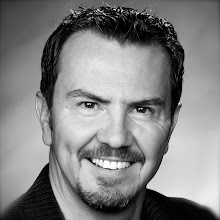"Be still, and know that I am God..." Psalm 46:10 (New King James Version)
"Desist, and know that I [am] God...." Psalm 46:10 (Young's Literal Translation)
The Hebrew word for "be still" is raphah (rä·fä') and here are the definitions taken directly from the Strong's concordance:
1) to sink, relax, sink down, let drop, be disheartened
a) (Qal)
1) to sink down
2) to sink, drop
3) to sink, relax, abate
4) to relax, withdraw
b) (Niphal) idle (participle)
c) (Piel) to let drop
d) (Hiphil)
1) to let drop, abandon, relax, refrain, forsake
2) to let go
3) to refrain, let alone
4) to be quiet
e) (Hithpael) to show oneself slack
Life is busy and rather noisy. Seeking God in the quiet places requires that we first find the quiet places. Our quiet places seem to have gotten lost these days. I think it's because silence and solitude are no longer natural responses to moments of free time---we have TV and cell phones and e-mail and texting to fill the silent spaces. Even when we are alone we are not alone.
Solitude is a forgotten art. However, Jesus modeled for us the spiritual discipline of solitude as an essential habit for spiritual renewal. We can be sure that what He found necessary to fulfill His Father's will is needful for us as well. Here are some examples of Jesus engaging in times of solitude:
- When preparing for the tests of leadership and public ministry, He spent 40 days alone in the desert (Matthew 4:1-11).
- Before He chose the Twelve, He spent the entire night alone (Luke 6:12).
- When He received the news of John the Baptist's death, He withdrew from there in a boat to a lonely place apart (Matthew 14:13).
- After the miraculous feeding of the 5000, Jesus went up on a mountainside by Himself (Matthew 14:23)
Solitude gives us space to adjust our attitudes toward people and events. It takes the world off our shoulders for a time and interrupts our habit of constantly managing things, of being in control (or thinking we are)! Notice particularly the words drop, withdraw, idle, abandon, relax, and refrain in the Hebrew definitions.
I firmly believe one of the greatest marks of spiritual maturity is the capacity to do nothing! The 17th-century Christian philosopher Blaise Pascal insightfully remarks:
"I have discovered that all the unhappiness of men arises from one single fact, that they are unable to stay quiet in their room. The cure for too much to do is solitude and silence, for there you find that you are safely more than you do. And a cure of loneliness is solitude and silence, for there you discover in how many ways you are never alone."

No comments:
Post a Comment